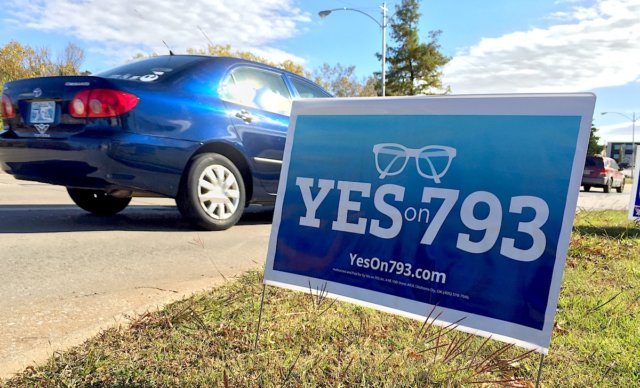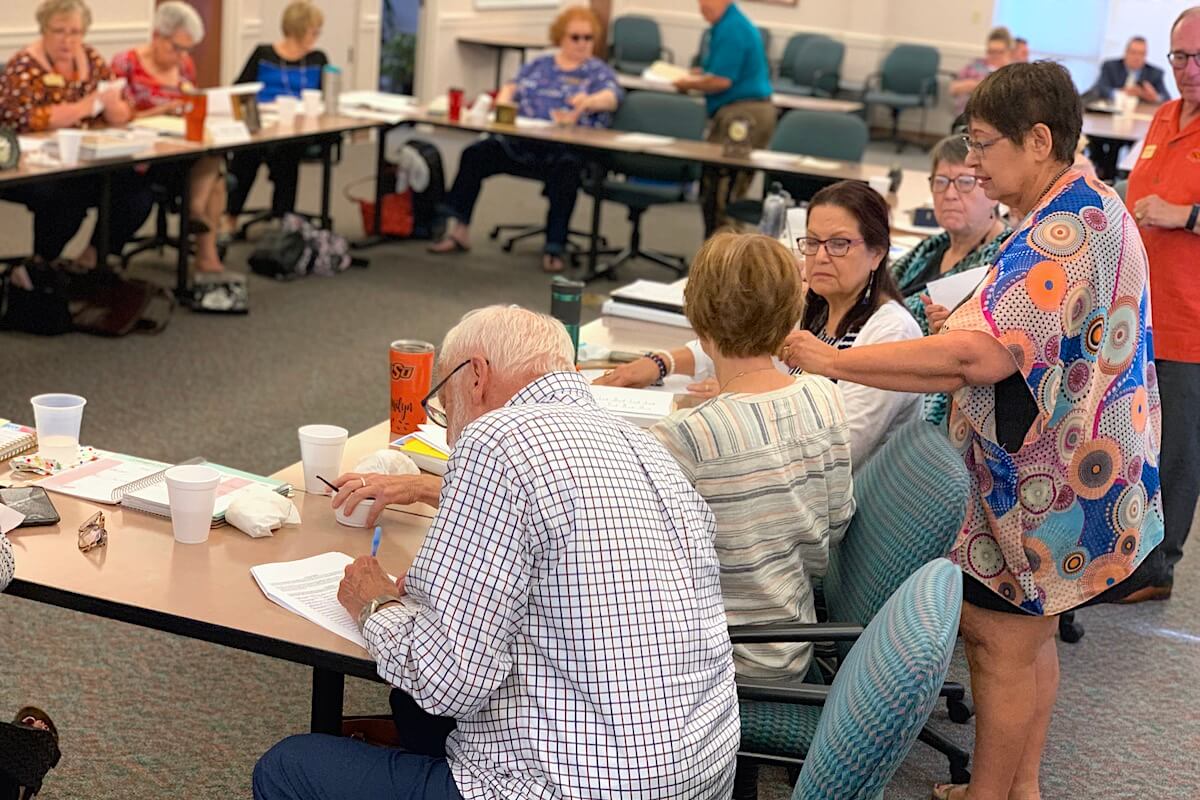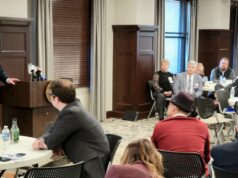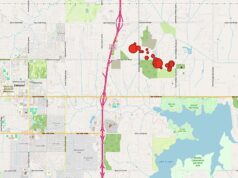
Signing a petition is the right of virtually every American, but for some, the simple act of providing their name and address on public documents can be a personal security risk.
That’s the dilemma faced by participants in Oklahoma’s Address Confidentiality Program which serves those affected by domestic violence who are seeking protection from an abuser.
There are currently 1,445 Oklahomans enrolled in the program, Alex Gerszewski, communications director for Oklahoma Attorney General Mike Hunter.
In a nutshell, the ACP works by shielding the physical address of those in the program from the public. Participants are provided a P.O. Box at the attorney general’s office. Their mail is collected and sent to their confidential physical address in packets.
The program began under the auspices of the Oklahoma Secretary of State in January 2003 and was then transferred to the Attorney General’s Office in 2008. When created, the Legislature outlined the specific purpose of the program:
The Legislature finds that persons attempting to escape from actual or threatened domestic violence, sexual assault, or stalking frequently establish new addresses in order to prevent their assailants or probable assailants from finding them. The purpose of this section is to enable state and local agencies to respond to requests for public records without disclosing the location of a victim of domestic abuse, sexual assault, or stalking, to enable interagency cooperation with the Attorney General in providing address confidentiality for victims of domestic abuse, sexual assault, or stalking, and to enable state and local agencies to accept an address designated by the Attorney General by a program participant as a substitute mailing address.
Confidentiality program provided relief
For Nicole Poindexter, the program was a welcome relief when she became a participant nearly four years ago. In late 2015, her then-husband threatened her with a gun.
Poindexter took her four children and moved into a YWCA shelter for a time before getting back on her feet. When she did, she wanted no contact with her ex-husband, and was fearful he might be able to obtain her address.
“Only the AG’s office is able to have my home address,” she said. “This is awesome because it prevents my ex or any other abuser from paying $5 for an online background check which would contain a home address.”
Poindexter has mostly praise for the program, which is applied for through designated victim assistance programs across the state.
“The concept of the program is great and is much needed for those in the situation that I found myself in,” she said. “And the staff at the AG’s office has been wonderful in working with me. I can’t say enough about them, and the YWCA, as far as how they have helped.”
But there have been complications. For one, she can’t sign initiative petitions because her address is technically a P.O. Box. State law prohibits the use of P.O. Boxes as addresses on petitions.
In an irony apparent to her and others, Poindexter was unable to sign the recent high-profile petition seeking a public vote on Oklahoma’s new permitless carry law. Poindexter could not sign the petition to bring medical marijuana to a vote, either, and she will be unable to sign State Question 802’s currently circulating petition to put Medicaid expansion on a 2020 ballot.
“I’m a victim of gun violence, but I can’t sign a petition that is aimed at decreasing gun violence,” she said. “I have to choose between my safety and my voice, and I need both. It’s very frustrating to have your voice silenced.”
Gerszewski said issues about signing petitions have not previously been voiced by participants.
“To our knowledge, this is the first time it has been an issue with anyone in the program,” he said. “However, if there are issues that program participants encounter, we encourage them to contact the program manager to see how they can be addressed.”

Complications remain for those in program
Poindexter said tasks she expected to be complicated by her P.O. Box address, like getting her kids enrolled in a new school, have come easy. Dealing with state agencies unaware of the program’s existence has proven to be more difficult.
“The really hard part is dealing with the state,” she said. “Outside of the Attorney General’s Office, I haven’t found a single person I’ve talked to that knew about the program. It just seems like something that is a simple fix.”
Gerszewski said the AG’s office is working to educate others about the program.
“The Address Confidentiality Program Manager has provided 12 trainings within the past year, training a total of 119 attendees,” he said. “Most of the attendees trained are victim advocates and counselors from certified or tribal domestic violence and sexual abuse programs.”
Gerszewski said others including victim witness coordinators from the District Attorney system and several members of coordinated community response teams such as law enforcement and prosecutors have also attended the sessions.
He said the AG’s office also works with the Secretary of State to ensure those enrolled in the program can register to vote and manage other tasks like changing their children’s schools.
Poindexter has also had difficulty using a P.O. Box for her driver’s license and obtaining her notary license.
“I had to fight with a tag agency and actually threaten to call the AG’s office,” she said. “They finally called the Department of Public Safety, and DPS was able to override the tag agency.”
It took Poindexter four months to be able to register to vote accurately, as her previous voting file remained in the state system with her old address.
“This took calling the State Election Board, getting them to send me an ACP packet, filling it out, getting it notarized and what not. Then submitting it,” she said. “Then I had to make sure it was in the vault as required. Numerous phone calls to numerous places.”
All of the hurdles were an eye opener.
“You are cut off financially,” Poindexter said. “If someone is like me, they have to go into hiding. It’s very isolating. You’re fighting the court system. You’re sometimes fighting the police to enforce VPOs, and all the while you’re trying to take care of yourself and your children. I can understand why some women, and some men, go back to their abusers. It’s easier to be scared and live within the rules than to be out on your own.”
Rep. Cyndi Munson (D-OKC) has prioritized domestic violence during her legislative tenure, and she said lawmakers would benefit from listening more to victims about their experiences with the Address Confidentiality Program.
“It’s sad enough that victims have to have their information protected from a perpetrator, but having them jump through multiple hoops to get basic things done like a driver’s license or signing a petition, they shouldn’t have those additional burdens,” Munson said. “I think it’s worth it to take a look at where that program is written into statute and make some updates and exceptions for victims to put down a P.O. Box or find ways to prove their registration.”
More access and education
Members of the Address Confidentiality Program have a choice every four years of whether to re-enroll. As her re-enrollment window approaches, Poindexter finds herself thinking a lot about those who are just beginning the process and those who will find themselves in the program in the future.
And for good reason. Oklahoma ranks among the worst states for domestic violence-related homicides. From 2012 to 2016, the number of those who died in domestic violence incidents increased annually reaching a high of 95 in 2016. It’s unclear if that number declined or increased in 2017 or 2018.
According to a Centers for Disease Control survey in 2012, nearly four in 10 Oklahoma women have experienced some form of violence at the hands of an intimate partner.
Nearly four years later, Poindexter’s life is getting back to something resembling normal. She said her ex-husband has received counseling and the two are on speaking terms again which has opened the door for the former couple to co-parent their children. But she would like to see greater access to the program, which must be enrolled in through an affiliated shelter.
“The YWCA did a great job getting me and my children help with so many things, and I will always be grateful for that help,” she said. “But there needs to be more access to the ACP program. In some rural areas, these shelters are nonexistent.”
(Correction: This article was updated at 5:40 p.m. Friday, Sept. 13, 2019, to reflect guidelines of program eligibility and enrollment accurately.)




















